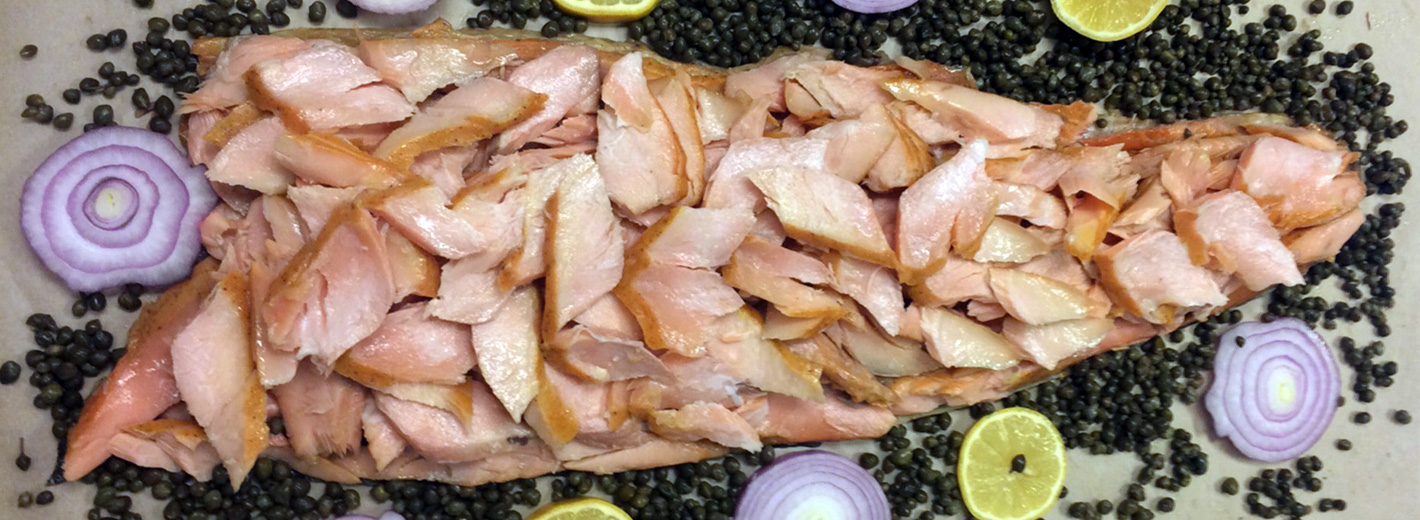
Mt. Angel Abbey’s Smoked Salmon Wins Good Food Award
- by bonappetit
Last fall, when the Good Food Awards announced a new preserved seafood category and issued a call for entries, Paul Lieggi, Bon Appétit Executive Chef/Manager at Mt. Angel Abbey in St. Benedict, OR, was intrigued.
Launched in San Francisco in 2012, the Good Food Awards are the first (and so far only) national contest for artisanally and sustainably produced foods. Panels of chefs, restaurateurs, and food journalists evaluate more than 2,000 submissions from almost all 50 states to choose a dozen or so winners in each of 14 categories, including chocolate, cider, coffee, cheese, and charcuterie. While flavor is the ultimate determinant, all submissions must also meet criteria for responsible food production: “made with good animal husbandry and without the use of artificial ingredients, hormones, synthetic pesticides, herbicides, fertilizer or genetically modified ingredients.”
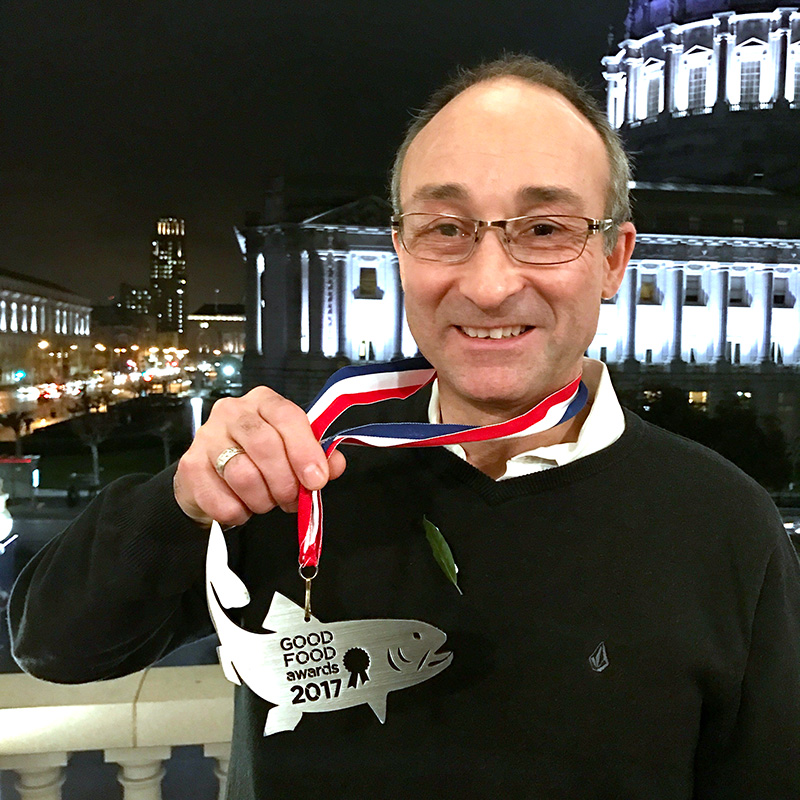
Paul Lieggi with his Good Food Award seafood medal
Not only do Paul and his team smoke a lot of locally and sustainably caught seafood for the Abbey’s daily European-style breakfast, but Paul and a partner used to own a successful seafood company in Boston, called Up in Smoke! So he decided to submit his smoked Columbia River Chinook salmon. And to everyone’s excitement, yesterday on January 20, their salmon won a Good Food Award!
While the smoking was important, so was starting with great salmon. Anyone who has enjoyed sustainably caught, wild Pacific salmon can appreciate its rich flavor and impressive health profile. But for the Mount Angel Abbey team, this particular salmon’s journey from river to plate is also a story worth telling.
Chinook salmon, a beloved fixture in Northwest cuisine, is a fish steeped in history, culture, and tradition that goes back centuries. Thanks to hard work and collaboration among government, industry, and Native tribes, the salmon stocks on the Columbia River today are strong and healthy.
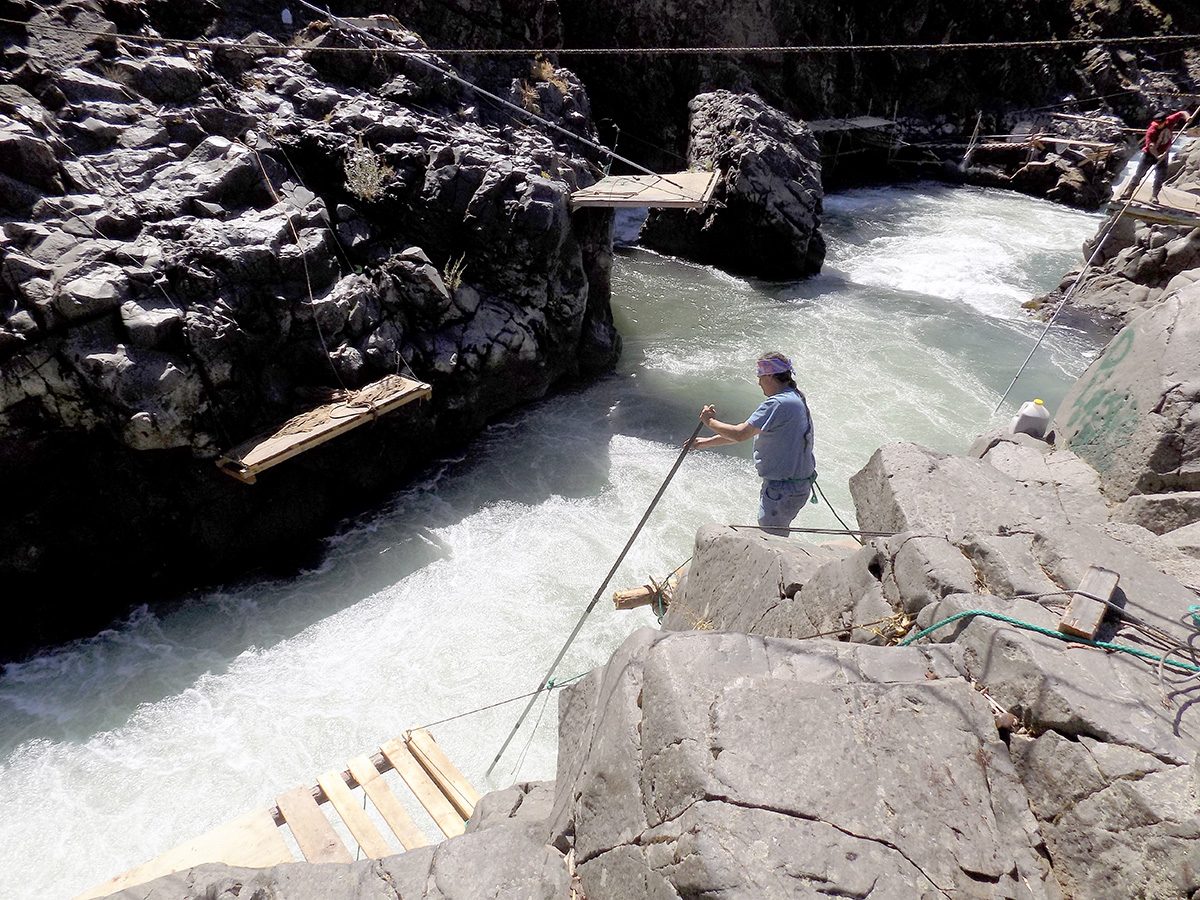
A member of the Umatilla tribe fishing with a hoop net
Bud and Wendy Herrera are among those whose dedication to and reverence for the Chinook has helped the local industry thrive. The Herreras are part of the Umatilla tribe. Their company, Two Rivers Fish Co., is 100 percent Native owned and operated. During salmon season, Bud fishes at night on the scaffolds that lean out over the Columbia River. He uses a hoop net that hangs in the water; when a fish swims into the hoop, it gets tangled in the net and Bud pulls it in and onto the scaffold. He immediately bleeds and guts the fish before placing it into Nano ice to chill quickly. He repeats this process again and again to the tune of 1,000 pounds of fish on a good night.
While Bud fishes, Wendy runs the buying station near Maryhill, WA. Just as Bud respects the salmon using best fishing practices, Wendy demands similar respect from all 60-plus families who fish for her. This respect includes handling each fish correctly: thoroughly bleeding when caught, gutting them immediately, and packing the fish in ice. This reverence is not only ethically and environmentally sound, but also makes for a top-quality fish.
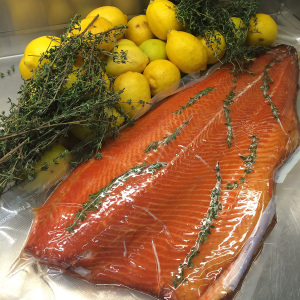
The smoked salmon that Mt. Angel Abbey submitted to the Good Food Awards
For optimal results, Paul’s team likes to smoke the Columbia River King salmon. The gentle smoke of Pacific Northwest hardwood imparts a delicate flavor, and the smoke-roasting process produces buttery, moist, and tender flesh inside with a burnished copper crust on the exterior. They eschew preservatives, additives, and chemicals and rely only on sea salt and spices to enhance the fish’s natural flavor. This salmon has become a staple in the catering department and on the Mount Angel Abbey guest house’s European breakfast menu. Happily, the guests enjoy eating it as much as the team enjoys working with it.
“This is going to sound arrogant, but I believe in our product so much that I wasn’t too surprised,” admits Paul. “I kind of knew it was a good product.”
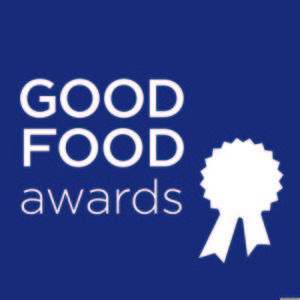 Paul and his wife traveled to San Francisco for the Good Food Awards ceremony, where Native American environmentalist, economist, and writer Winona LaDuke gave a fiery, inspiring keynote, then joined honorary hosts Alice Waters and Nell Newman in bestowing medals on all the honorees. Afterward, the 900 guests mingled and enjoyed samples of all the winning Good Food submissions prepared in inventive ways. Paul’s salmon, served with tangy soft cheese on a cracker, was quickly snapped up as soon as the trays were set out.
Paul and his wife traveled to San Francisco for the Good Food Awards ceremony, where Native American environmentalist, economist, and writer Winona LaDuke gave a fiery, inspiring keynote, then joined honorary hosts Alice Waters and Nell Newman in bestowing medals on all the honorees. Afterward, the 900 guests mingled and enjoyed samples of all the winning Good Food submissions prepared in inventive ways. Paul’s salmon, served with tangy soft cheese on a cracker, was quickly snapped up as soon as the trays were set out.
For Paul, the attention was nice, but the real reward came in the validation and inspiration his team now feels. “It’s been a good thing at work, for the staff to see how something we do all the time for the Abbey go all the way to win an award,” says Paul. “I like my team to know they can do great things, they just have to take a chance and go for it.”
He’s already thinking of what they’ll submit next year!
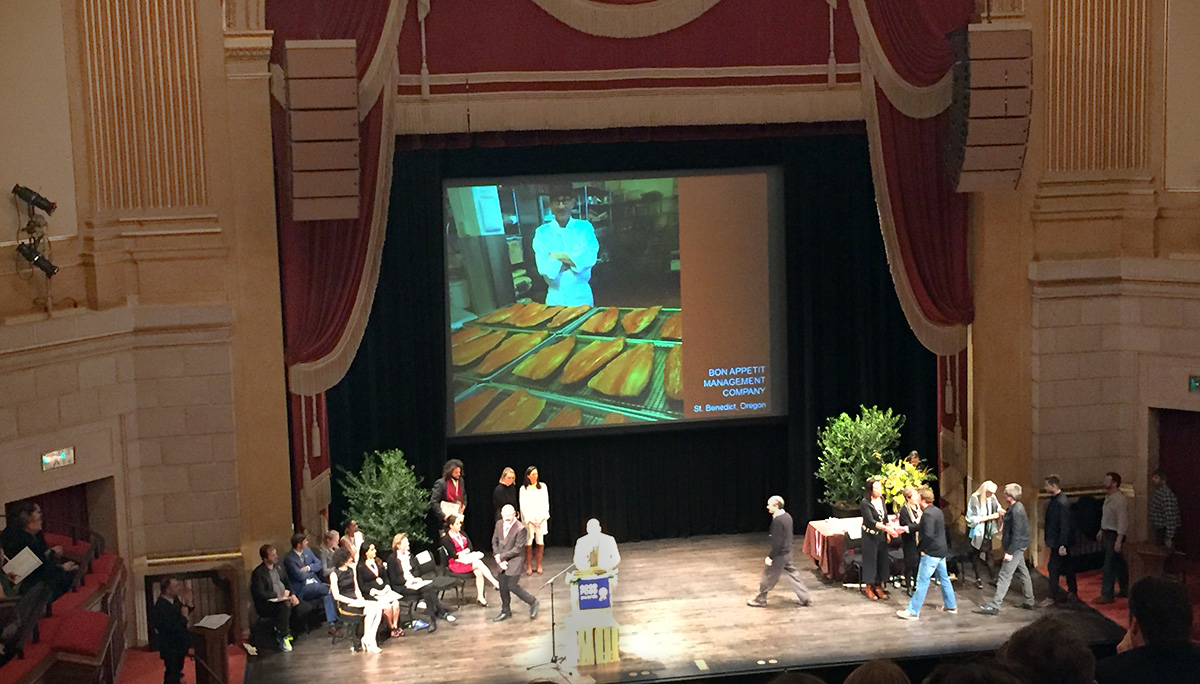
Paul Lieggi walks across the stage after accepting his medal from celebrated restaurateur Alice Waters